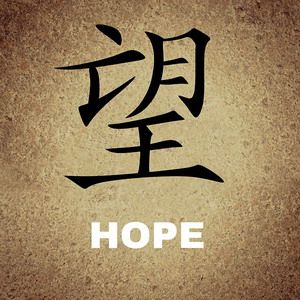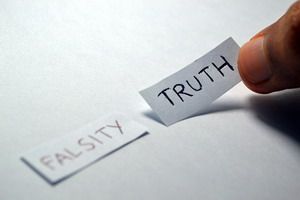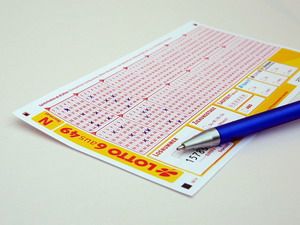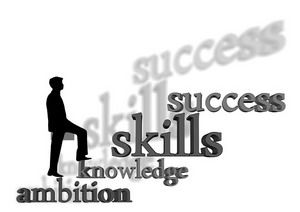
Hope is one of those virtuous feelings that always seems to be promoted as a good thing… but is it? The gambling addict living from paycheck to paycheck always hoping for his “big score” might be an example of a false hope that does not serve the person. Another example is the infatuated fan living in hope that the movie star he or she dreams about will somehow magically be theirs. Some hopes paralyze people into inaction, because they believe that if they actually pursue their hopeful dream, they will fail.
Some hopes are the stuff of legends. Hope will drive people to fight against incredible odds and give them the chance to come out a winner. Racers, mountain climbers, freedom fighters, every walk of life has its share of success stories where the only thing that kept people trying was hope. What is the difference between these cases of hope and the ones in the previous paragraph?

What got me thinking about hope was a cute little program on HULU the other day about Santa Claus gathering up all the goodwill expressed during the year and redistributing it as hope for the next year. It then showed an EMT loosing a patient in an ambulance. With a last second burst of hope, the EMT tried the electric paddles one more time and this time he successfully restarted the patient’s heart. Another scene was of a person about to jump off a building and end it all only to gain a last second bit of hope and deciding to give life one more try.

I have certainly been through both true hopes and false hopes many times in my life, so I started contemplating what was the difference other than the outcome? This feels particularly appropriate with Easter only a couple weeks away. Easter is all about the story of hope – the hope of an eternal afterlife. The hope that your life has a greater meaning than whether or not you have paid all your taxes.
What makes some hopes true hopes and others false hopes? The tendency is to say that true hopes are the ones that come true and false ones don’t come true. However this is obviously false as evidenced by all the people that have a hope of success in a particular endeavor, but have to keep trying repeatedly before they achieve success. Success did come in spite of the many failures showing the hope to have been true in spite of the experience of failure so many times. This is

so commonplace that in the self-motivation fields it is frequently said that the primary difference between success and failure is the number of attempts. You are not a failure until you lose hope and give up trying.
So success or failure is not the measure of true hope versus false hope. Lets go to the dictionary: hope is the feeling that what is wanted can be had or that events will turn out for the best. As a verb hope is defined as: to believe, desire, or trust, and to look forward to with desire and reasonable confidence. Here we have a solid basis for looking at true versus false trust. That what is wanted can be had says that hope has to be for something that is real and possible, or that you at least have a reasonable confidence that it is possible. That means what you hope for has to line up with how things actually work down here, and you have to be willing to do what it takes to bring that hope into fruition. Opportunity may indeed come knocking at your door, but if you don’t get up off the couch and answer the door and then do what opportunity asks of you, your hope will never manifest. Even something as improbable as winning the lottery still requires you to buy a ticket.

The lottery is a good example of true versus false. The hope is for financial security and freedom forever. Is there a reasonable expectation that you will win? No, therefore it is a false hope. But even some false hopes still come true now and then. But did buying the lottery ticket in fact buy you financial security and freedom forever – even if you did win? No again – 95% of all lottery winners are in the same or worse financial straits within 5 years of their win. The 5% that do come out long time winners were not in financial straits in the first place. They already knew how to manage money. Financial freedom and security comes from learning the skills of money management, not from getting a boatload of money. So the idea that a lot of money will buy you freedom and security is completely one of those false hopes. It is in the same category as hoping that pigs will fly – just not the way things work down here.
This brings me to what I got in contemplating the subject of hope. True hope is based on connecting your inside skills and energies to the world in order to manifest your desires. These are reasonable desires and expectations since it is about you applying your efforts towards some goal. Hope is rooted in the experience that as you change, your life changes. True hope is based on believing in yourself. False hope is based on believing that your circumstances will change without you having to change. False hope is believing that your

feelings come from outside yourself and that changing your circumstances will make you happy. False hope is the belief that you can change other people and that by doing so you will be happy.
True hope comes from inside yourself; false hope looks for outside “fixes” for your problems. When I look closely at hope, what I see and feel is really the embracing of the chaos of life. Hope is the willingness to let go of your current expectations and view and embrace the possibility of something else. By feeling hope, you open the door to other possibilities. Your creative heart and brain can now take over and push forward against the odds and keep trying new things until you discover what will work for you. When you believe in yourself you can have hope. The people that I know that carry the feelings of hopelessness are the people that do not believe in themselves. They do not have the confidence to keep trying something new until they succeed. They become self-fulfilling prophecies; they stop trying or never start and then say “see, there is no hope for a better tomorrow.”
False hope is the belief that some sort of magic will give you what you desire or save you. More than most people, I know magic is real. I also know it does not work the way people want it to. It is something to be grateful for when it comes as a grace, but the grace is wasted if it is cast like grain on unprepared and infertile soil.

Take on True Hope – believe in your ability to adapt to the constant change that is life and creatively carve out a bit of happiness for yourself.
